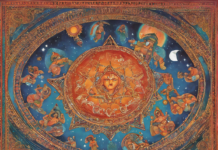Anime is a diverse and captivating medium that has captured the hearts of millions around the world. From thrilling action-packed adventures to heartwarming slice-of-life stories, anime covers a wide range of genres and themes. One recurring theme that has resonated with many viewers is the portrayal of ‘My Mother’ in various anime series.
Mothers play a significant role in shaping the characters and storylines in anime. They can be depicted as kind and nurturing figures who provide unconditional love and support to their children, or they may be portrayed as complex individuals with their own struggles and flaws. In this article, we will delve into the impact of ‘My Mother’ in anime, exploring the different ways in which this theme is explored and how it adds depth and complexity to the narrative.
The Archetype of the Mother in Anime
In anime, mothers are often depicted as the emotional center of the family. They are the ones who care for their children, offering comfort and guidance in times of need. The archetype of the mother in anime is typically loving, selfless, and wise, embodying the ideal of maternal instinct and unconditional love. This portrayal can be seen in series such as Clannad, where the protagonist’s mother is a source of emotional strength and stability, providing a sense of home and belonging in the midst of turmoil.
On the other hand, some anime subvert this archetype by portraying mothers who are flawed and imperfect. These characters may struggle with their own demons, making mistakes and facing consequences for their actions. This complexity adds layers to the narrative, challenging viewers to question societal expectations of motherhood and explore the nuances of human relationships. An example of this can be found in Fullmetal Alchemist, where the protagonists grapple with the consequences of their mother’s choices and the impact it has on their journey.
The Role of ‘My Mother’ in Character Development
The presence of ‘My Mother’ in anime often serves as a catalyst for character development. The relationship between a character and their mother can shape their beliefs, motivations, and choices throughout the story. It can be a source of inspiration and strength, driving the protagonist to overcome challenges and grow as an individual. Alternatively, it can be a source of conflict and inner turmoil, fueling the character’s quest for understanding and self-discovery.
In series such as Naruto, the protagonist’s longing for his absent mother drives his desire for recognition and acceptance. This emotional core resonates with many viewers who relate to the universal themes of loss and the search for identity. By exploring the impact of ‘My Mother’ on a character’s development, anime provides a nuanced portrayal of the complexities of family dynamics and personal growth.
Themes of Sacrifice and Resilience
Another common theme associated with ‘My Mother’ in anime is the idea of sacrifice and resilience. Mothers in anime often make selfless sacrifices for the sake of their children, facing adversity with courage and determination. This theme is beautifully illustrated in series like Wolf Children, where the protagonist’s mother navigates the challenges of raising half-human, half-wolf children on her own. Her unwavering love and determination to provide a better future for her children showcase the strength and resilience of maternal bonds.
Furthermore, the theme of sacrifice extends beyond the personal realm to encompass larger societal issues. In Grave of the Fireflies, the devastating impact of war on a mother and her children highlights the harsh realities of sacrifice in the face of tragedy. By exploring these themes, anime sheds light on the profound depths of maternal love and the lengths to which a mother will go to protect her offspring.
Challenges and Triumphs of Motherhood in Anime
While ‘My Mother’ is often portrayed in a positive light in anime, the medium also examines the challenges and triumphs of motherhood in all its complexities. From the pressures of societal expectations to the personal struggles of balancing work and family life, anime presents a nuanced portrayal of the joys and hardships of being a mother. Series like March Comes in Like a Lion delve into the emotional toll of single motherhood, highlighting the resilience and determination of women facing adversity.
Moreover, anime explores unconventional forms of motherhood, challenging traditional notions of family and gender roles. In Sweetness and Lightning, the protagonist learns to navigate the responsibilities of parenthood with the help of his young daughter and a supportive community. This heartwarming depiction of non-traditional family dynamics celebrates the diverse ways in which individuals can create bonds of love and support.
The Legacy of ‘My Mother’ in Anime
The impact of ‘My Mother’ in anime extends beyond the confines of individual series, leaving a lasting legacy on viewers and shaping cultural perceptions of motherhood. Through its diverse portrayals of maternal figures, anime invites audiences to reflect on their own relationships with their mothers and the role of family in shaping one’s identity. The emotional resonance of these narratives transcends cultural boundaries, connecting viewers from different backgrounds through shared experiences of love, loss, and resilience.
As anime continues to evolve and explore new storytelling avenues, the theme of ‘My Mother’ will likely remain a cornerstone of its narrative landscape. By honoring the complexities and nuances of maternal relationships, anime reaffirms the universal values of compassion, sacrifice, and unconditional love that define the essence of motherhood.
Frequently Asked Questions (FAQs)
1. Is the portrayal of mothers in anime always positive?
While mothers in anime are often depicted in a positive light, there are also instances where they are portrayed as flawed or complex characters. This diversity adds depth to the storytelling and allows for a more nuanced exploration of maternal relationships.
2. How does anime challenge traditional gender roles in its depiction of motherhood?
Anime often showcases non-traditional forms of motherhood, such as single motherhood, same-sex parenting, and unconventional family dynamics. By breaking away from traditional gender roles, anime celebrates the diversity of maternal experiences.
3. Are there any anime series that focus specifically on the theme of motherhood?
Yes, there are several anime series that explore the theme of motherhood, such as Usagi Drop, Poco’s Udon World, and Aishiteruze Baby. These series delve into the joys and challenges of parenthood, offering poignant reflections on the complexities of family life.
4. How does the portrayal of mothers in anime compare to other forms of media?
Anime often provides a more nuanced and emotional portrayal of motherhood compared to other forms of media. The medium’s emphasis on character development and interpersonal relationships allows for a deeper exploration of the complexities of maternal bonds.
5. What are some of the most iconic mother figures in anime?
Some of the most iconic mother figures in anime include Chi-Chi from Dragon Ball, Sachiko Fujinuma from ERASED, and Hana from Wolf Children. These characters exemplify the diverse portrayals of mothers in anime and their impact on the narrative.








